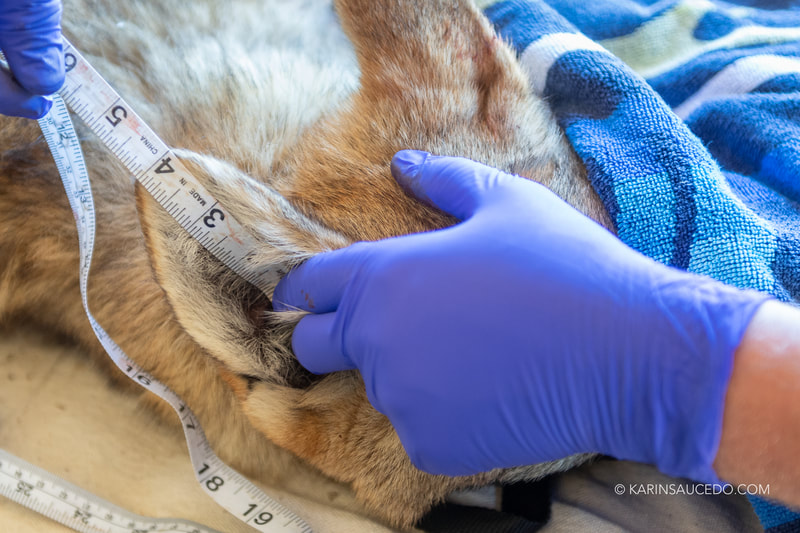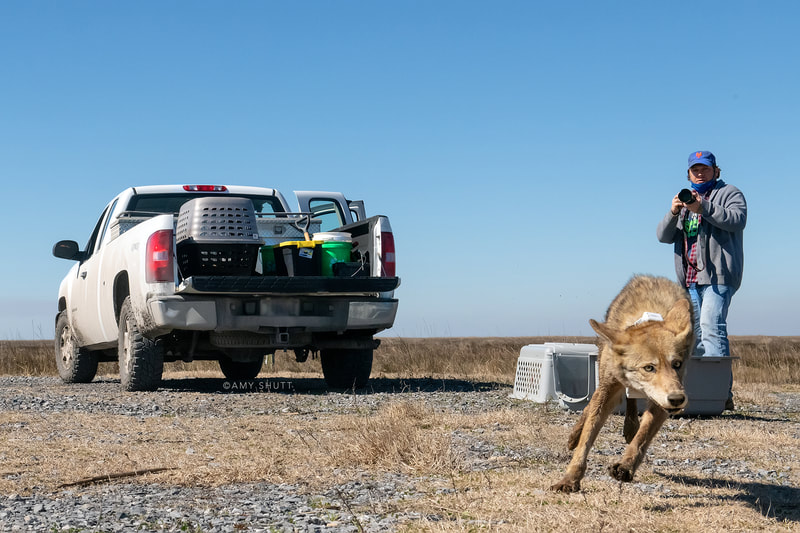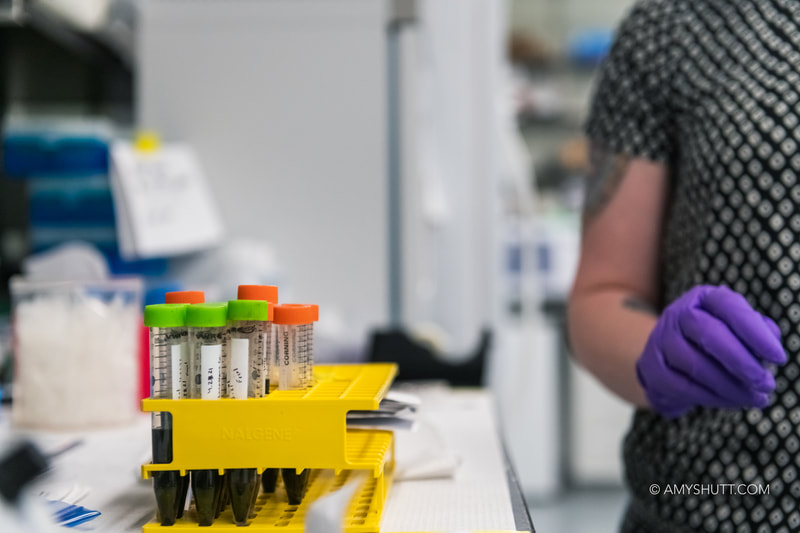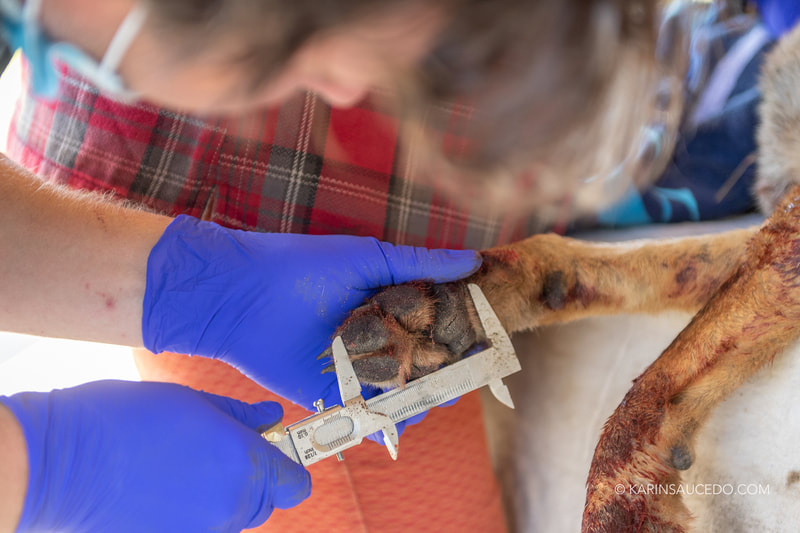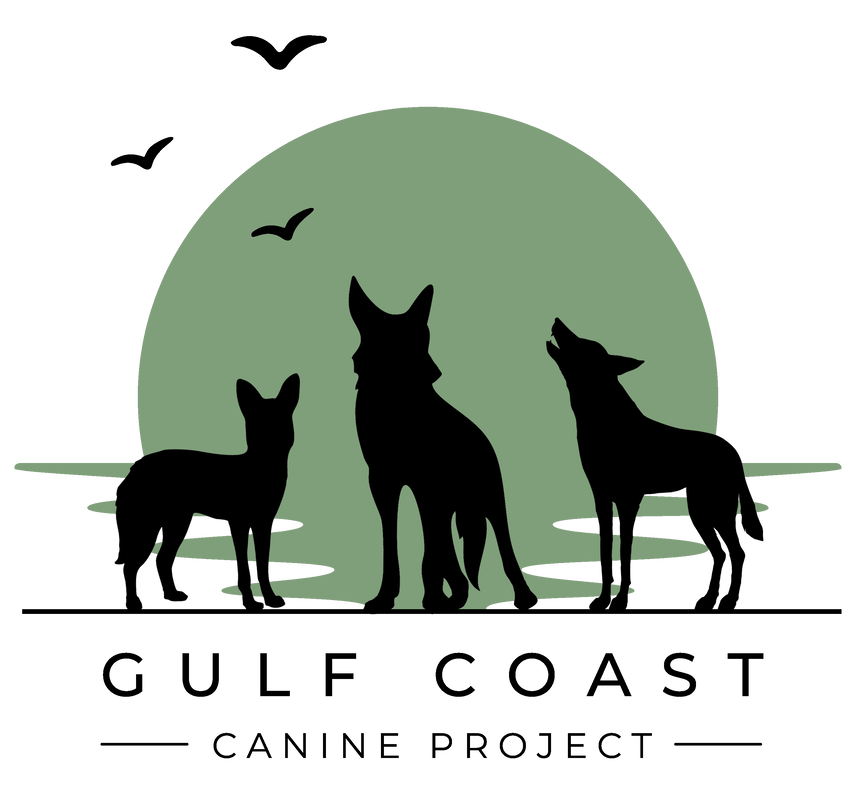ABOUT THE GULF COAST CANINE PROJECT
|
The Gulf Coast Canine Project (GCCP) was established by Drs. Kristin Brzeski, Bridgett vonHoldt, and Joey Hinton in 2020 when our canine research along the Gulf Coasts of Texas and Louisiana gained momentum and national attention. We created GCCP to encompass our research and the community-based approach we are developing to understand, monitor, and manage the unique canines persisting across the Gulf Coast.
Our research story began when we investigated the "strange looking" coyotes reported by curious citizens of southwestern Louisiana and eastern Texas. Photographed animals did not resemble typical coyotes and exhibited some red wolf features. Our first research publication from Galveston Island in 2018 confirmed what locals knew for decades: these coyotes are ‘fancy!’ and harbor high amounts of red wolf genetics through historic hybridization prior to the disappearance of red wolves from the region in the 1980s. Locally, these unique canines are starting to be called Ghost Wolves, in highlight their red wolf ancestry and continued persistence in plain sight. Since this initial discovery, we have expanded our work to include study sites in southwestern Louisiana and we continue to document Gulf Coast canines, or ghost wolves, with high amounts of red wolf ancestry. Hybridization was once thought to be the greatest conservation threat to the red wolf, but now historic admixture may be key to their recovery. We are diligently working to understand these unique canids and to share our research with the public. Red wolves are still critically endangered, and these animals along the Gulf Coast may be reservoirs of unique red wolf genes, once believed to be extinct. Additionally, the Gulf Coast canines represent a one-of-a-kind population that may behave and respond to environmental change differently than other canines. We continue to work to better understand these ghost wolves. Our research efforts include live trapping to collect genetic samples and morphology data; deploying GPS collars to track animal movement; sequencing samples to identify red wolf ancestry; fecal collection to determine diet; camera surveys for community assessments. Most importantly, our outreach efforts include townhall discussions, national webinars, partner involvement, and, hopefully soon, engaging local school groups. We are using our exciting discoveries to work with local communities to promote coexistence and tolerance of Gulf Coast canines. Through science and outreach we aim to preserve native canines, their distinct genetics, and the natural areas they inhabit along the Gulf Coast. Our vision is to develop regional pride while ensuring the persistence of red wolves into the 21st century through the revival of genetic ancestry found in Gulf Coast canines, who continue to thrive in their native habitats. - Kristin, Bridgett, and Joey: the GCCP Team. |
Photo credits: Tristan Spinski, Amy Shutt
|








